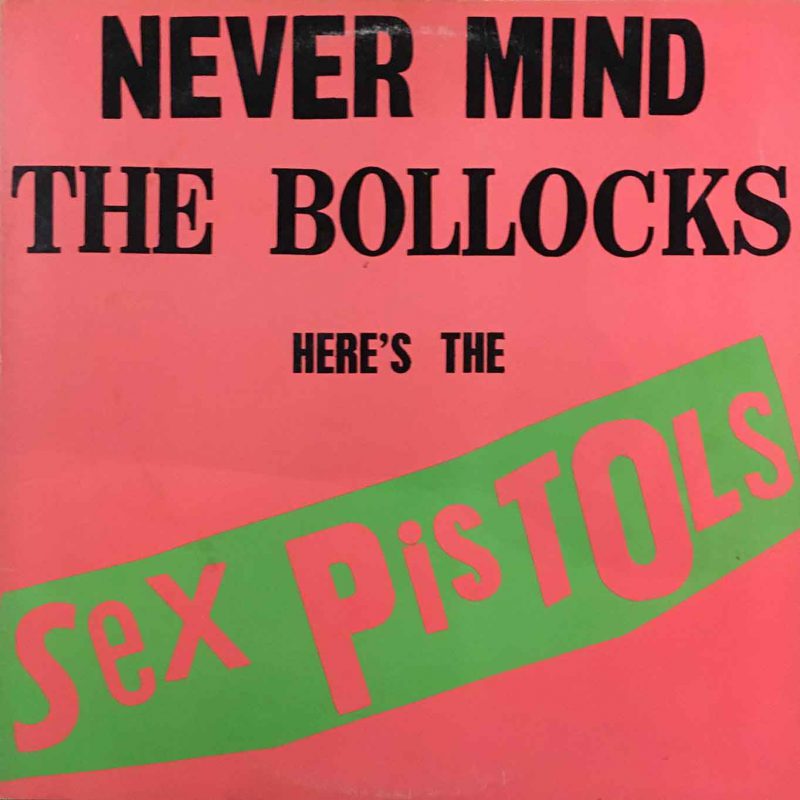Punk
Among the crowd with whom I grew up, already accustomed to thrash bands like DRI and Cryptic Slaughter, and having been raised with punk hardcore like Discharge, Amebix, Cro-Mags, and the Exploited, the Sex Pistols sounded sort of like the Beatles or Tina Turner. We called them “pop punk” or “punk rock.”
Note: this was not a very nice term. It is akin to calling someone a poseur or weekender.
The Sex Pistols had their place, of course, like the Ramones and the Stooges, following two generations of Blue Cheer styled loud super-simplified electric blues bands and Link Wray styled experimental noisy rock music. They were to their generation as Danzig was to the Slayer generation: mellow.
We threw on their album when we wanted to chill out after an afternoon of moshing to hardcore punk and all those weird transition bands like Sodom, Celtic Frost, Bathory, and you guessed it, Slayer.
However, for most of America, the Sex Pistols were corporate approved rebellion. They were after all on a major label and sold through the big distributors; you could find the album in any record store, where death metal was stocked by almost none, and the Cro-Mags were verboten.
Apparently, despite having heard the lyrics to “Bodies,” most people were shocked when Sex Pistols frontman Johnny Rotten supported Trump:
“He’s an individual thinker, I’ll give him that for a start. He’s not the most lovable fellow on God’s earth, but I cannot see the opposition as offering me anything by way of a solution,” he said.
“Yes, of course I’m voting for Trump,” Mr. Lydon affirmed later in the interview. “It’s bad person or not. I don’t want a politician running this world anymore.”
The legendary punk singer was later photographed in 2018 wearing a shirt containing Mr. Trump’s campaign slogan, “Make America Great Again,” and that image was widely circulated online last month.
Most people misunderstand punk, because the easiest way to conceptualize it was as anarchy, or desire for liberalization of all rules so that the individual could have maximum freedom. They do the same thing to nihilism, Christianity, and any other philosophy.
In short, the crowd understands two modes: (1) obey authority and (2) reject authority. Nowhere does it ask about how to select the most competent authority, since some authority is obviously needed, as we see in the history of even the most liberal anarchist communes.
The herd consists of the lowest common denominator ideas of its members. Those generally can be summarized as “it’s not my fault” and “someone else must fix it,” with an underlying sentiment of a refusal to change the thoughts of the individual to be more realistic and morally good. People want to believe that they do not need to change, therefore they believe that they are good, and therefore, they infer, the problems they encounter must be the result of some terrible System, King, or evil Demon.
Punk on the other hand inherently distrusted the crowd. More than anarchic, it was anti-human, meaning that it recognized — far ahead of its time — that the problem of humanity was humanity, not human leaders. Our leaders reflect what is in our souls, and we see there cowardice and scapegoating.
Even appeals to anarchy such as in “Anarchy in the UK” contained a criticism of the false Utopianism of Anarchism:
I am an anarchist
Don’t know what I want but
I know how to get it
I wanna destroy the passer by
In its purest form, punk distrusted the consensus, or the utilitarian measure of what most people believed. They saw how in groups, humans centered around inoffensive lies instead of difficult truths, and how this made anarchy a pipe dream just like all other Utopian or totalitarian thought.
As many have said, conservatism is the new counter-culture. In the 1970s, society seemed to be Right-wing, so punk rebelled against that consensus. Now that we see that society was in fact moving Leftward for the past few centuries, the only rebellion can be against the herd itself.
Tags: hardcore punk, john lydon, punk, sex pistols










